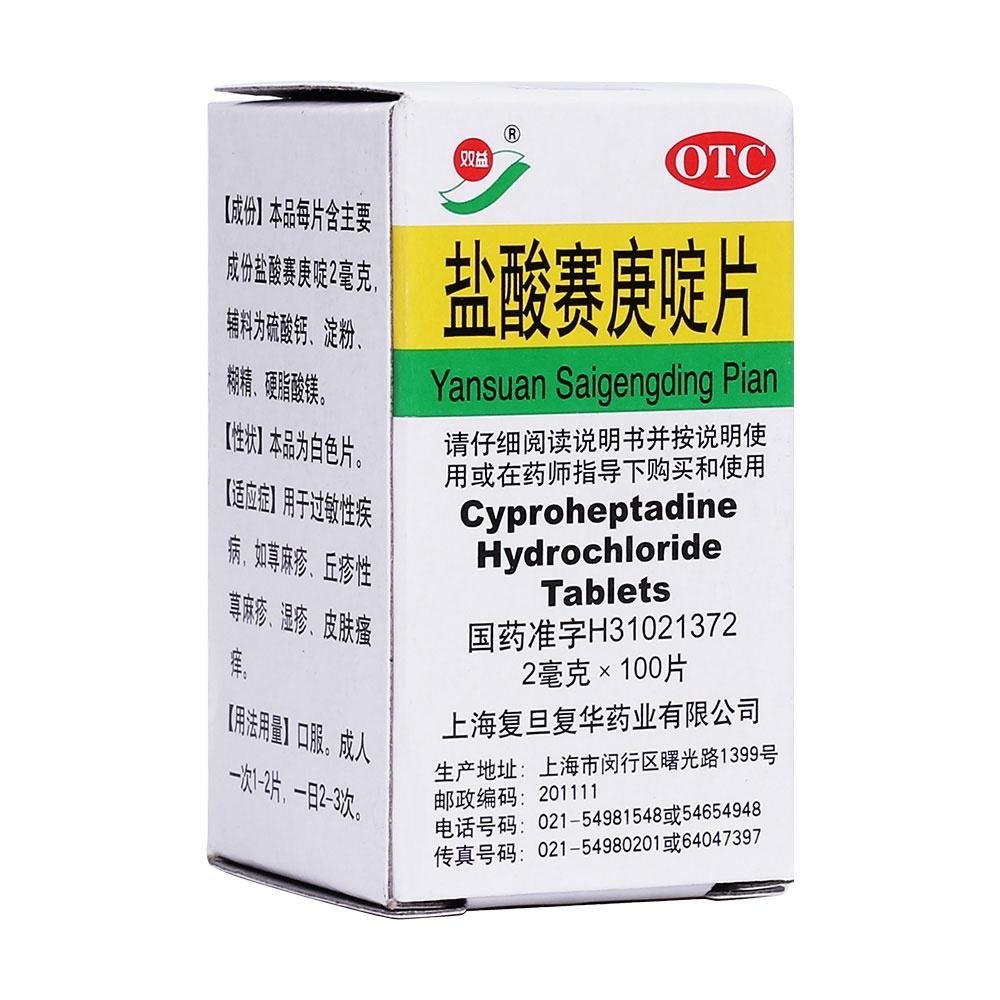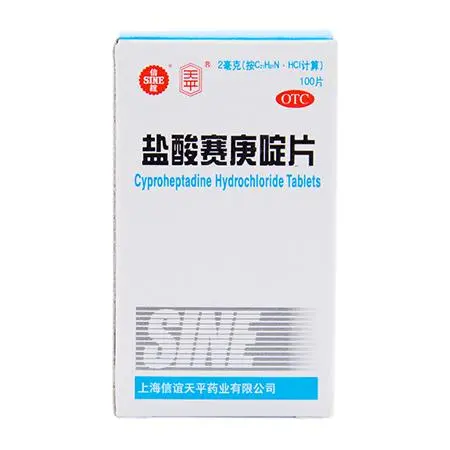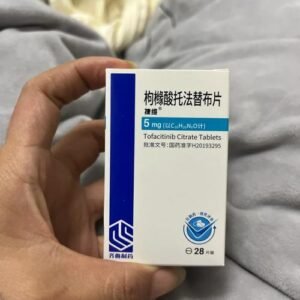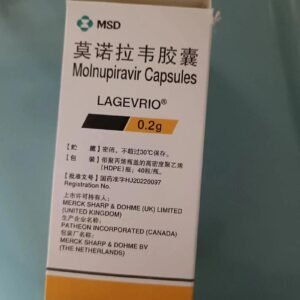Cyproheptadine Hydrochloride Tablets
Cyproheptadine Hydrochloride Tablets
Effects:
This product can be used for anti-allergic treatment: perennial and seasonal allergic rhinitis. Vascular rhinitis. Allergic conjunctivitis. Mild, monoallergic skin manifestations of urticaria and angioedema. Allergic reaction to blood or plasma. Urticaria. Skin scratch sign. After the acute symptoms are controlled, it is used as an auxiliary anti-allergic treatment method for epinephrine and other standard measures.
Usage and Dosage:
Adults: Oral, 2-4 mg once, 2-3 times a day. Pediatrics: Oral, 0.1 mg/kg once, 2-3 times a day, the maximum dose is 0.2 mg/kg once; children under 6 years old should not exceed 1 mg at a time; children under 2 years old should not use it. The elderly are more sensitive to the conventional dose of adults and can be reduced as appropriate.
Adverse reactions:
There may be drug rash, photosensitivity dermatitis, hypotension, tachycardia, extrasystoles, anaphylactic shock; hemolytic anemia, leukopenia, thrombocytopenia; drowsiness, fatigue, headache, insomnia, paresthesia, convulsions and other neuropsychiatric symptoms, and rare digestive disorders. This product can also cause adverse reactions such as dry mouth, bitter mouth, thick sputum, constipation, decreased lacrimal gland secretion, thick bronchial secretions, and urinary retention. Long-term use of this product can increase appetite and increase weight. Excessive doses of the drug can also cause mental confusion and ataxia.
Drug contraindications:
Allergic to this product is prohibited. It is prohibited during pregnancy and lactation. It is prohibited for drinking and driving.
Share:
Products
Our offers
Health Classification
Let us work together to protect precious health

































